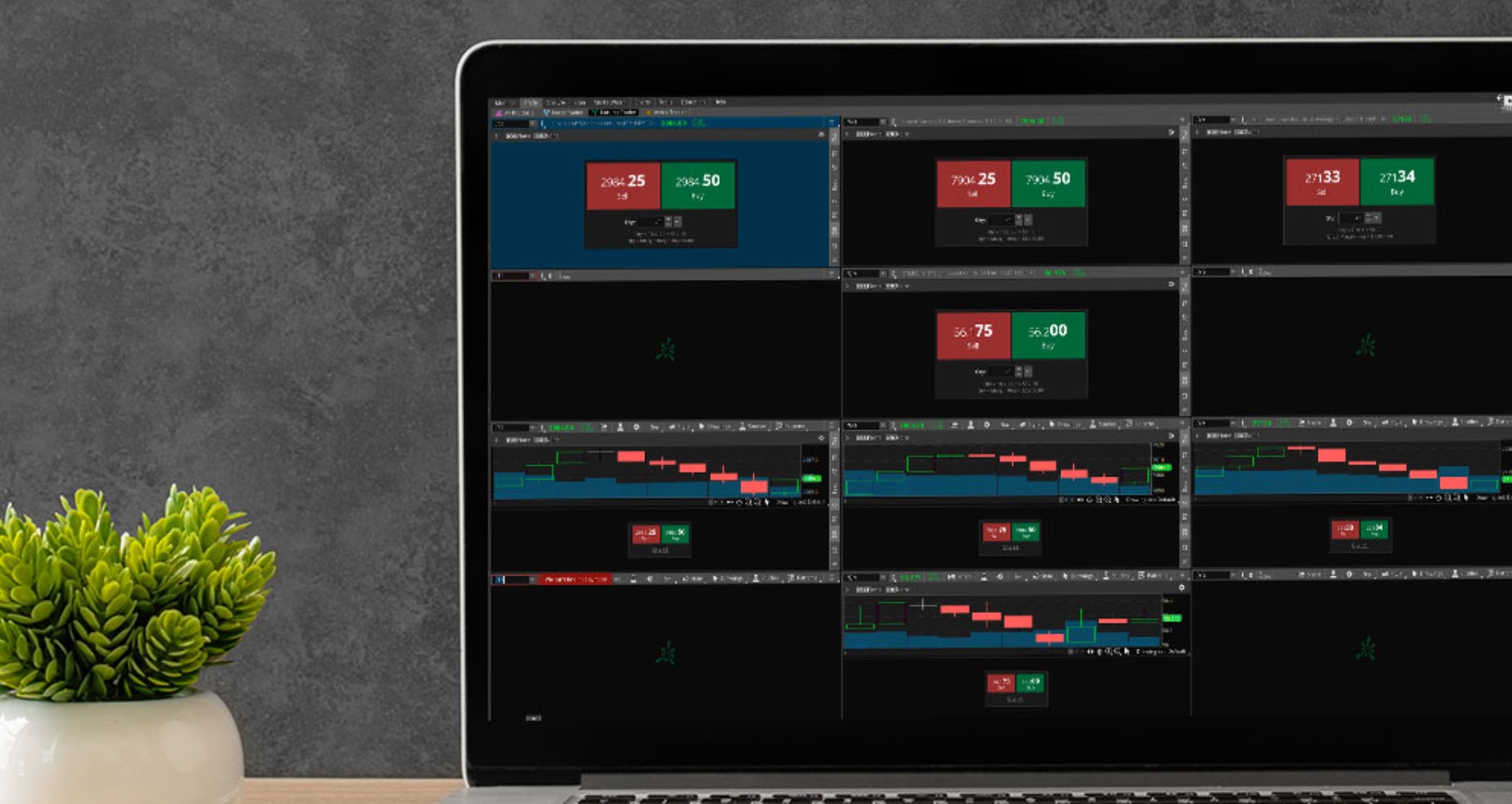Futures trading is an exciting and dynamic market that allows investors to speculate on the future price movements of various assets, such as commodities, currencies, and financial instruments. It offers opportunities for both hedging and speculative trading, making it a popular choice among traders looking to diversify their investment portfolios. We’ll delve into the basics of futures trading, exploring its key concepts, benefits, and risks.
How Futures Trading Works
In futures trading, traders take positions based on their expectations of the future price movements of the underlying asset. They can either go long (buy) if they believe the price will rise or go short (sell) if they anticipate a price decline. By taking these positions, traders can potentially profit from both rising and falling markets.
Futures contracts have expiration dates, after which they settle either through physical delivery of the underlying asset or in cash. Most futures traders, especially individual investors, close out their positions before the expiration date to avoid the obligations associated with physical delivery.
Benefits of Futures Trading
Futures trading offers several advantages to market participants. Firstly, it provides opportunities for leverage, allowing traders to control a larger position with a smaller amount of capital. This amplifies potential returns but also increases risks. Additionally, futures markets are highly liquid, enabling traders to enter and exit positions quickly. The availability of diverse markets and asset classes allows for greater portfolio diversification. Furthermore, futures trading offers the ability to hedge against price risks, protecting businesses and investors from adverse market movements.
Risks Associated with Futures Trading
While futures trading presents various benefits, it also involves inherent risks. The leverage offered by futures contracts magnifies both profits and losses, making it essential for traders to manage risk diligently. Volatility in futures markets can lead to rapid price fluctuations, resulting in substantial gains or losses. Traders should be aware of the potential for margin calls and the need to maintain sufficient account balances. It is crucial to conduct thorough research and analysis before entering trades and to implement risk management strategies effectively.
Popular Futures Markets
When it comes to futures trading, there are various popular futures markets that traders can choose to participate in. Each market has its own unique characteristics and appeals to different types of traders. To provide a better understanding, let’s compare the pros and cons of some of the most popular futures markets:
|
Futures Market |
Pros |
Cons |
|
Commodities |
– Diverse range of commodities to trade, including oil, gold, and agricultural products. – Opportunity to profit from price fluctuations in essential goods. – Influenced by global economic factors. |
– Commodities markets can be highly volatile, leading to significant price swings. – Prone to geopolitical risks, weather conditions, and supply-demand imbalances. |
|
Stock Market |
– Exposure to broad market movements by trading index futures. – Potential for diversification across multiple industries. – Availability of liquid and actively traded contracts. |
– Stock market futures can be influenced by company-specific news and earnings reports, leading to higher volatility. – Market sentiment and economic factors can impact stock market futures. |
|
Currencies |
– Opportunities for traders to speculate on the exchange rate between two currencies. – Availability of major currency pairs for trading. – Highly liquid and accessible market. |
– Currency markets can be affected by central bank policies, economic indicators, and geopolitical events, making them volatile. – Trading currencies requires a deep understanding of macroeconomic factors. |
|
Interest Rates |
– Traders can speculate on the direction of interest rates and bond yields. – Possibility to hedge against interest rate risks. – Influence of economic indicators and monetary policy decisions. |
– Interest rate futures can be affected by unexpected policy changes, leading to price volatility. – Requires knowledge of bond markets and macroeconomic factors. |
It is important for traders to carefully consider their risk tolerance, trading goals, and understanding of each market before deciding which futures markets to participate in. By weighing the pros and cons of each market, traders can make informed decisions and optimize their trading strategies to maximize their chances of success.
Fundamental Analysis in Futures Trading
Fundamental analysis involves evaluating the underlying factors that drive the price of a futures contract. This analysis includes studying supply and demand dynamics, geopolitical events, macroeconomic indicators, and government policies. By understanding these factors, traders can make informed decisions about their futures trades.
Technical Analysis in Futures Trading
Technical analysis focuses on analyzing historical price and volume data to predict future price movements. Traders use various tools and techniques, such as chart patterns, indicators, and trend lines, to identify potential trading opportunities. Technical analysis helps traders identify entry and exit points, manage risk, and develop trading strategies.
Choosing a Futures Broker
Selecting a reliable and suitable futures broker is a crucial step for successful futures trading. With numerous options available, it’s essential to consider the following factors when choosing a futures broker:
- Reputation: Look for brokers with a solid reputation in the industry. Consider their track record, years of operation, and any accolades or awards they have received.
- Trading Platform: Evaluate the features and functionality of the broker’s trading platform. It should offer user-friendly navigation, real-time market data, charting tools, order types, and customization options.
- Commission and Fee Structure: Compare the commission rates, fees, and any additional charges associated with trading futures contracts. Opt for a broker that offers competitive rates and transparent pricing.
- Customer Support: Ensure the broker provides reliable customer support. Look for multiple channels of communication, such as phone, email, and live chat, and assess their responsiveness and helpfulness.
- Educational Resources: Consider the availability of educational resources provided by the broker. This can include tutorials, webinars, trading guides, and market analysis. A broker that offers educational support can be valuable for both novice and experienced traders.
- Regulatory Compliance: Verify that the broker is regulated by a reputable financial authority. Regulatory oversight helps ensure transparency, security of funds, and adherence to industry standards.
- Account Types: Check if the broker offers different types of accounts to cater to various trading needs. This can include individual, joint, corporate, or retirement accounts.
- Margin Requirements: Understand the broker’s margin requirements for futures trading. Lower margin requirements can provide greater leverage but also increase risk. Ensure you are comfortable with the margin levels imposed by the broker.
- Order Execution: Assess the broker’s order execution capabilities. Look for fast and reliable order execution, minimal slippage, and access to multiple liquidity providers.
- Security: Prioritize brokers that employ robust security measures to safeguard your personal and financial information. This can include encryption technology, secure login procedures, and segregated client funds.
- Broker’s Expertise: Consider the broker’s expertise in futures trading. Look for brokers with experienced staff who can provide insights, market analysis, and trading recommendations.
Strategies for Successful Futures Trading
Successful futures trading requires a well-defined trading plan and disciplined execution. Traders can employ various strategies, such as trend following, mean reversion, breakout trading, and spread trading, to capitalize on market opportunities. It is important to backtest and evaluate strategies before implementing them in live trading and to adapt to changing market conditions.
Risk Management in Futures Trading
Effective risk management is paramount in futures trading. Traders should establish risk tolerance levels, set stop-loss orders, and diversify their portfolios to mitigate potential losses. Implementing proper position sizing and maintaining sufficient account capital are essential to withstand market volatility and minimize risks.

